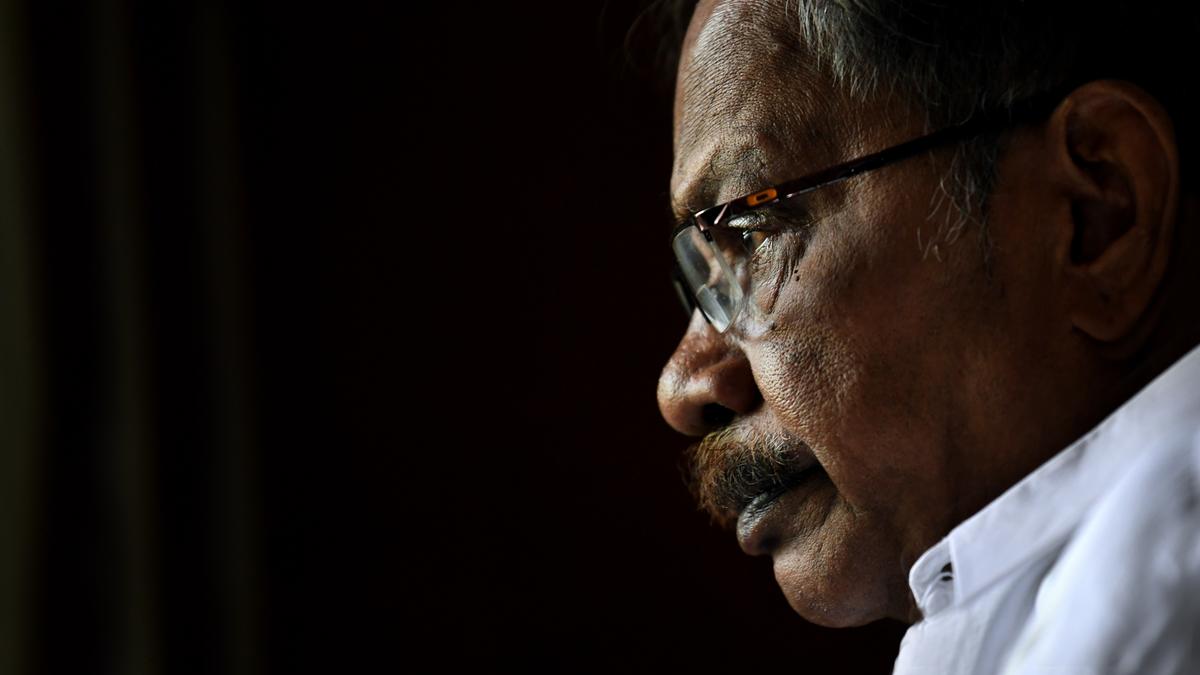
The sorcery of the river Nila
The Hindu
M.T. Vasudevan Nair, a versatile writer and filmmaker, defied categorization with his impactful literary and cinematic contributions.
M.T. Vasudevan Nair, whose death is mourned by tens of thousands of Keralites across the globe, was a writer who defied easy categorisation.
Dubbed as a romantic egotist in his youthful days, he was seen by many as a true successor of Changampuzha, the tragically gifted lyric poet who was cut short in the prime of his life. In fact MT did go through a midlife crisis which took him to the brink of death, only to return to a new incarnation of sorts characterised by ceaseless activity stretched over half a century. His artistic career lies in parenthesis between the two dominant schools in our literary milieu, one described as progressive realism and the other going by the name modernism. His writings clearly parted way with the notion of literature as a weapon in the class struggle. At the same time, he did not feel drawn towards the existential overtones which marked the modernist assault in the late 1960s and 70s.
MT was one of the foremost literary editors Kerala has seen in recent time with an unerring talent for spotting promising young writers. There was something casual about his entry into the celluloid world. But he quickly emerged as a much sought after screenwriter, credited with shaping or reshaping the cinematic profile of three big stars. He proved his mettle as an organiser through his effort at establishing a fitting memorial for Thunchathu Ezhuthachan, the father of Malayalam language.
It was his ambition to create out of his small village named Kudallur something in the manner of William Faulkner’s fictional kingdom, Yoknapatawpha. His early short stories and three of his novels are located in this village on the banks of river Nila. In these he captured the silent whispers and mute despair of helpless individuals caught in the twilit zone of feudal decay. His revenge-obsessed protagonists, pitted against the merciless practices of a dying feudal era, somehow resonated with the Malayali readers, touching a raw chord within. And MT is a writer of pauses and silences choosing suggestive understatement over direct polemics. His novel Randamoozham (The Second Turn) where he attempted a de-mythification or subversion of the Mahabharata story, soon turned out to be an all-time best seller, translated into different Indian languages.
One needs only look at the stagey or overly theatrical nature of the screenplays in Malayalam to realise the kind of change he brought about with his more nuanced ways of telling a story. He has penned over fifty screenplays and directed some nine movies. Many would recall the way he recast the character of Chanthu, a renegade figure in folk songs, lending him a deepening tragic quality. Out of the collaboration of MT and Bharathan came Thazhvaram, a film drawing inspiration from Hollywood Western, set in a brooding landscape. His signature work as a director is Nirmalyam, which won the national award for the best film of the year. Here he set in place his premonition of the disastrous consequences of modern-day commercialisation, weighing down upon the peace and harmony of a traditional way of living.
The river Nila still flows on, its surface deceptively calm. But gone is the master storyteller who went on to probe the secrets of its dark undercurrents.
(The writer is a literary critic and filmmaker)

The High Court of Karnataka has directed the Registrar of Births and Deaths to issue revised or modified birth or death certificates, changing the gender, indicating both the earlier and the present name and gender of transgender persons. This is to be done till amendments are made to the Registration of Births and Deaths Act, 1969, which at present has no provision to revise the original birth or death certificate to change the gender.

Greater Chennai Corporation’s proposed waste-to-energy plant at Kodungaiyur dump yard faces backlash
Residents in Chennai express concern over proposed incinerator at Kodungaiyur dump yard due to potential pollution risks.









